Managing reindeer in temperatures of — 50 C shows devotion of Aoluguya Ewenki man, Xu Haoyu reports.
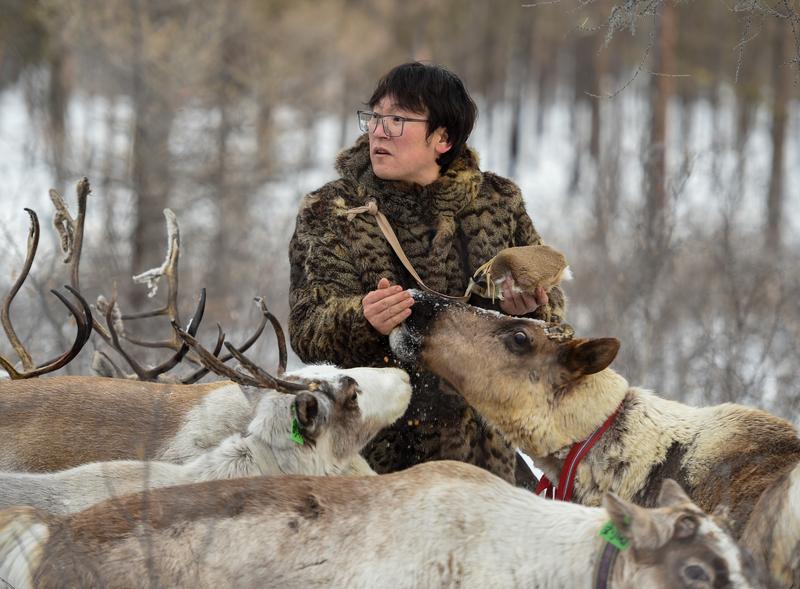 Juele feeds soybean cake to one of his herd. (PHOTO / XINHUA)
Juele feeds soybean cake to one of his herd. (PHOTO / XINHUA)
"Ah-oh", Juele shouts into the distance, followed by the Ewenki word emege, which means "come back". It is a long, high-pitched sound that echoes through the trees.
Juele, 39, wears animal-skin clothing handed down from his Aoluguya Ewenki ancestors as he searches for, and calls to his reindeer herd in the forests and snow fields of the Greater Hinggan Mountains.
I’m now looking forward to the coming summer, when a new batch of antlers will have turned mature and, most importantly, tourism in Genhe will definitely flourish again
Juele, Aoluguya Ewenki reindeer keeper
After each call, he will stand still and wait for their reaction. If the reindeer hear him, they will run toward him and the bells around their necks will jingle.
At a farm that belongs to the Jinhe forestry bureau, which is more than 80 kilometers away from Genhe city, Inner Mongolia autonomous region, Juele herds more than 60 reindeer in the traditional method of the Aoluguya Ewenki people.
Juele leaves the reindeer to forage and roam freely in the forest. Every two to three days, he treks through the thick snow and goes into the dense forest to find his herd.
"As the ecology is getting much better now than in earlier years, in the forest, fierce animals such as bears, lynxes and wolves have become bolder, so I have to come often to see if the reindeer have encountered any predators," Juele says as he recalls that one of his herd was killed by a lynx.
Ewenki means "people who live in the big mountains and forests", and Aoluguya is an Ewenki word meaning "a place with lush poplar forests".
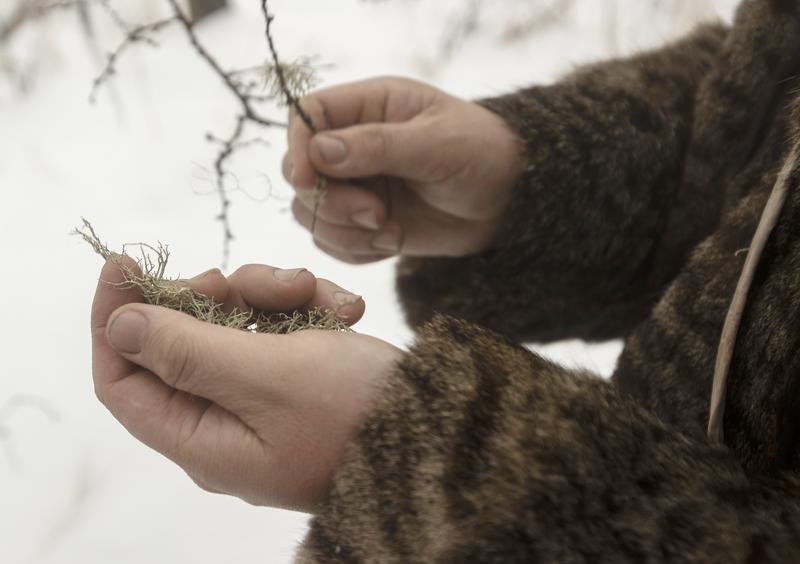 Aoluguya Ewenki reindeer keeper Juele examines moss from a tree, a favorite food of the animal. (PHOTO / XINHUA)
Aoluguya Ewenki reindeer keeper Juele examines moss from a tree, a favorite food of the animal. (PHOTO / XINHUA)
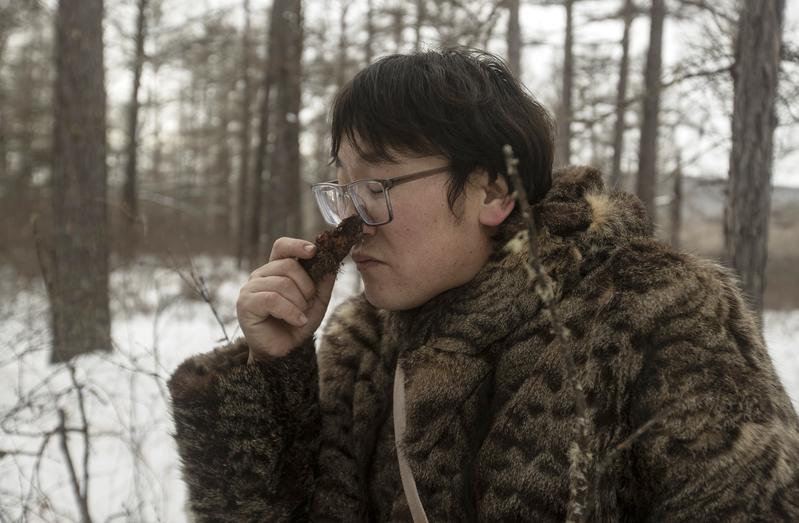 He inspects a piece of bark from a pine tree in the forest. (PHOTO / XINHUA)
He inspects a piece of bark from a pine tree in the forest. (PHOTO / XINHUA)
Aoluguya Ewenki is the last reindeer tribe and the only reindeer breeding ethnic group in China. In 2003, they moved from the mountains to the city of Genhe, but the traditional culture is passed down thanks to the country's protection efforts.
Juele grew up with his mother in the mountain forests, the ringing reindeer bells produced a much-loved soundtrack to his childhood.
After graduating, he worked in the medical imaging department of a hospital in Beijing, but he could always feel the call of his hometown.
"Even when I was sitting on the couch at home, I could hear the reindeer bells ringing in my ears," he says.
In 2015, Juele finally decided to follow his heart and returned to Aoluguya township to take over the task of raising reindeer from his aging mother.
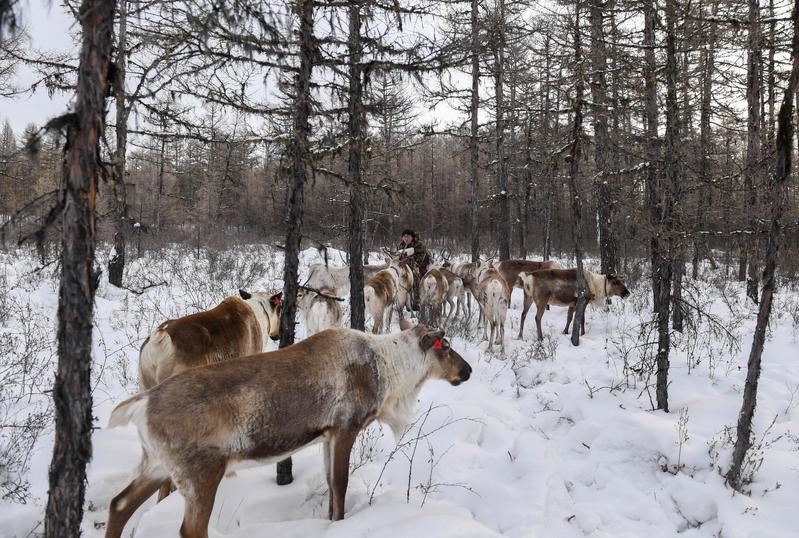 Juele's herd of reindeer forages deep in the forest. (PHOTO / XINHUA)
Juele's herd of reindeer forages deep in the forest. (PHOTO / XINHUA)
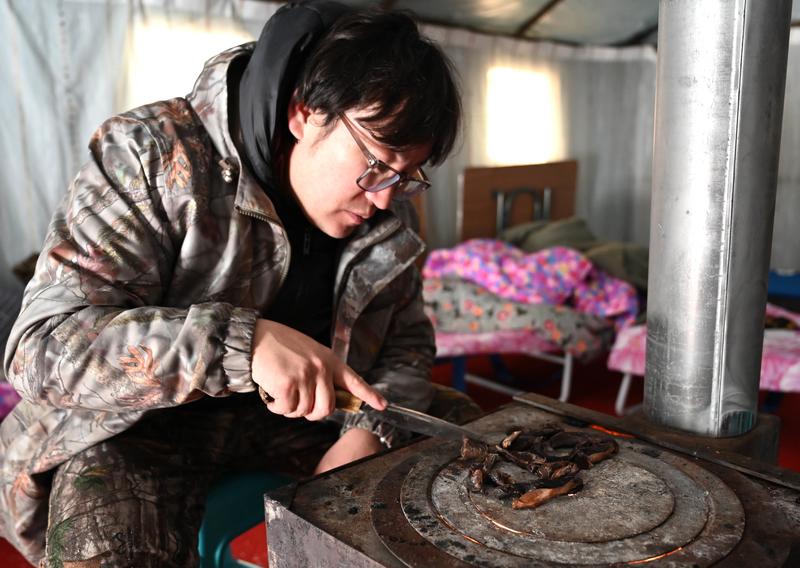 Juele prepares dried meat on a stove in his tent. (PHOTO / XINHUA)
Juele prepares dried meat on a stove in his tent. (PHOTO / XINHUA)
Rearing reindeer is monotonous, lonely and sometimes difficult.
The reindeer live in the dense forest in the hinterland of the Greater Hinggan Mountains, which is more than 10 kilometers away from the nearest town. Living in such a remote area with no mobile signal, Juele has to battle intense solitude.
The weather verges on the unbearable. Aoluguya is located in Genhe, known as "the cold pole of China", where the temperature in winter can sometimes drop below-50 C.
For most people, spending a few minutes exposed to this temperature would be dangerous.
But the Aoluguya Ewenki people like Juele, who live here, often walk for several kilometers through knee-deep snow to find their herd.
From Dec 23 to Jan 1, Juele spent more than eight hours every day searching the snow-covered forest before finding his reindeer.
"That was the best New Year's gift I've ever received, and this gift also suggests to me that 2023 is going to be a wonderful year," Juele says.
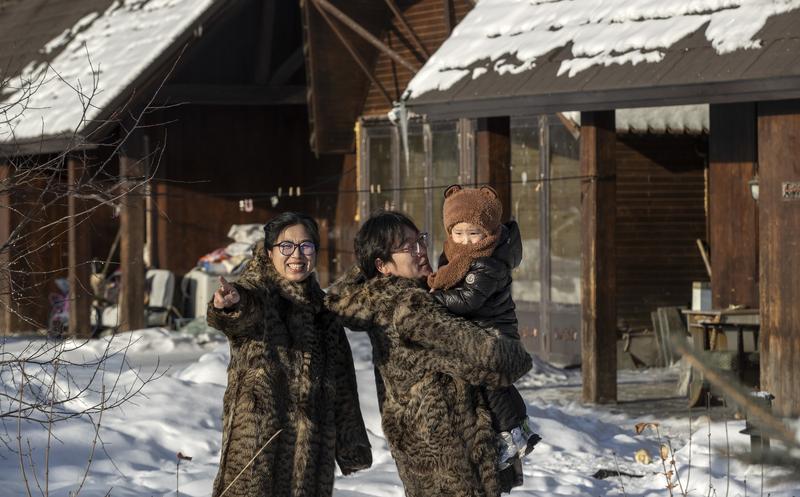 Juele with his wife and their child. (PHOTO / XINHUA)
Juele with his wife and their child. (PHOTO / XINHUA)
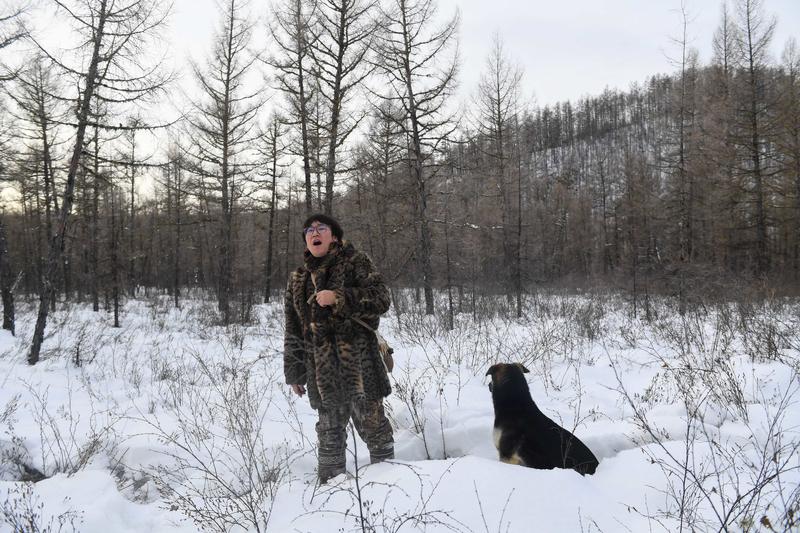 He summons his reindeer in the forest. (PHOTO / XINHUA)
He summons his reindeer in the forest. (PHOTO / XINHUA)
The local government has made a great effort to improve the life of the Aoluguya Ewenki people. Residents have been provided with free housing after moving from the mountains to Genhe; at the reindeer habitat in the mountains, caravans with good insulation, which look like small houses on wheels that can be towed by a vehicle, are provided to make it easier for Aoluguya Ewenki people to relocate their reindeer. In addition, the government is trying to develop tourism to increase the income of local people.
Juele claims that he normally earns more than 100,000 yuan ($14,739) a year from reindeer breeding, selling antlers and serving tourists, and has no problem supporting his family.
However, his income in the last three years experienced a significant decrease due to the pandemic, with antler sales down and tourism taking an even bigger hit.
"I'm now looking forward to the coming summer, when a new batch of antlers will have turned mature and, most importantly, tourism in Genhe will definitely flourish again," Juele says.
Xinhua contributed to this story.
Contact the writer at xuhaoyu@chinadaily.com.cn


